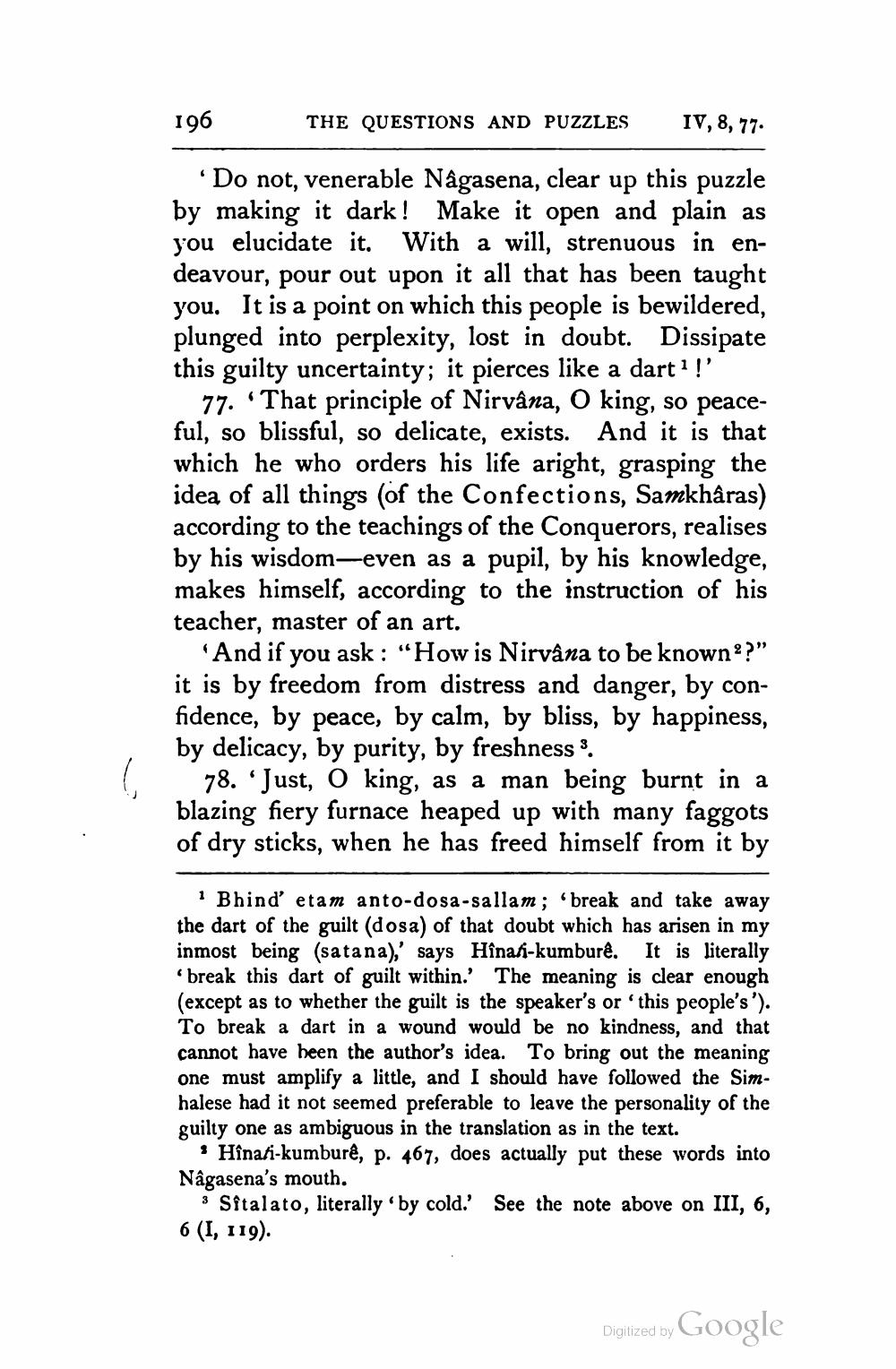________________
IV, 8, 77.
'Do not, venerable Nâgasena, clear up this puzzle by making it dark! Make it open and plain as you elucidate it. With a will, strenuous in endeavour, pour out upon it all that has been taught you. It is a point on which this people is bewildered, plunged into perplexity, lost in doubt. Dissipate this guilty uncertainty; it pierces like a dart1!'
77. 'That principle of Nirvâna, O king, so peaceful, so blissful, so delicate, exists. And it is that which he who orders his life aright, grasping the idea of all things (of the Confections, Samkhâras) according to the teachings of the Conquerors, realises by his wisdom-even as a pupil, by his knowledge, makes himself, according to the instruction of his teacher, master of an art.
196
THE QUESTIONS AND PUZZLES
'And if you ask: "How is Nirvâna to be known??" it is by freedom from distress and danger, by confidence, by peace, by calm, by bliss, by happiness, by delicacy, by purity, by freshness 3.
78. Just, O king, as a man being burnt in a blazing fiery furnace heaped up with many faggots of dry sticks, when he has freed himself from it by
1 Bhind' etam anto-dosa-sallam; 'break and take away the dart of the guilt (dosa) of that doubt which has arisen in my inmost being (satana),' says Hînai-kumburê. It is literally 'break this dart of guilt within.' The meaning is clear enough (except as to whether the guilt is the speaker's or 'this people's'). To break a dart in a wound would be no kindness, and that cannot have been the author's idea. To bring out the meaning one must amplify a little, and I should have followed the Simhalese had it not seemed preferable to leave the personality of the guilty one as ambiguous in the translation as in the text.
• Hîna/i-kumburê, p. 467, does actually put these words into Nâgasena's mouth.
Sftalato, literally 'by cold.' See the note above on III, 6, 6 (I, 119).
Digitized by
Google




